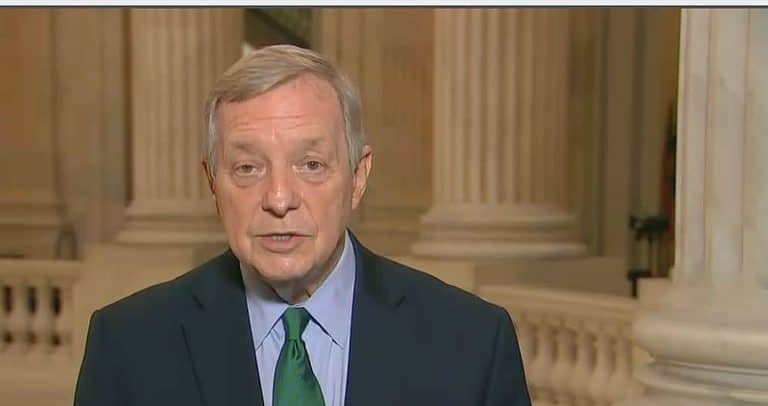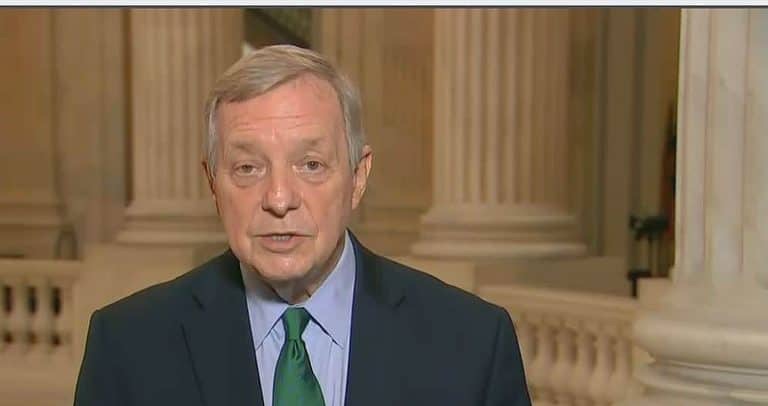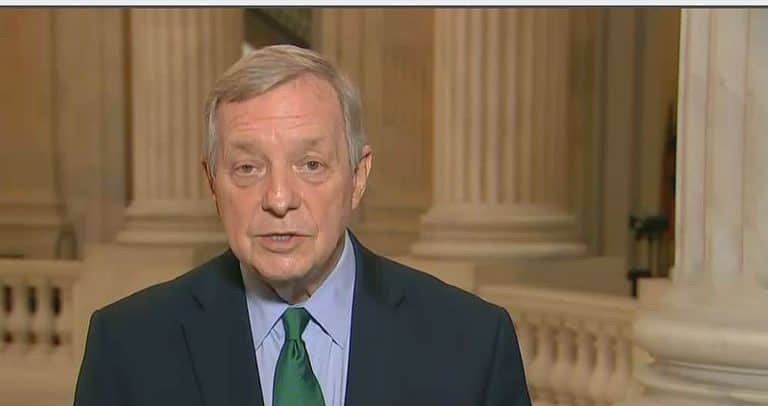In a significant move, Senate Judiciary Committee Chair Senator Dick Durbin (D-IL) has formally requested that the House Ethics Committee preserve all documents related to its report on Representative Matt Gaetz (R-FL). Gaetz, a prominent and often controversial member of Congress, was recently floated as a potential nominee for U.S. Attorney General under former President Donald Trump, reigniting scrutiny surrounding past ethics investigations. Durbin’s request suggests growing concern within the Senate over Gaetz’s fitness for such a critical role.

Durbin’s appeal highlights the importance of transparency and accountability in the nomination process, especially for a role as influential as Attorney General. The position holds significant power in shaping the enforcement of federal laws and guiding the direction of the Department of Justice (DOJ). Given Gaetz’s recent history and the House Ethics Committee’s ongoing investigations, Durbin is calling for a thorough examination of Gaetz’s record before any serious consideration for the position.
Background on the House Ethics Committee’s Investigation into Matt Gaetz
Gaetz has been the subject of a House Ethics Committee investigation since 2021, which stemmed from allegations regarding potential misconduct. The investigation, which has not been fully disclosed, reportedly includes accusations related to campaign finance violations and ethical lapses. While Gaetz has consistently denied any wrongdoing, the Ethics Committee has not yet released a public report on its findings.
The timing of Durbin’s request coincides with mounting speculation over Gaetz’s potential role in a future Trump administration. Gaetz, known for his staunch loyalty to Trump and his vocal support of the former president’s policies, has risen in influence within the Republican Party. However, the prospect of him being nominated for Attorney General has raised questions about his ability to serve impartially, especially given his involvement in past controversies.
Why Durbin’s Request Matters
Durbin’s decision to formally ask the House Ethics Committee to preserve documents is unusual but underscores his commitment to a transparent vetting process. His role as Chair of the Senate Judiciary Committee gives him considerable influence over the nomination process, and any nominee for Attorney General would likely face thorough scrutiny from the committee before a potential confirmation.
By requesting that the Ethics Committee maintain records on Gaetz, Durbin is signaling that the Senate may weigh the findings of the House investigation heavily. He emphasized the need for a fair and comprehensive review, suggesting that ethics and accountability should be non-negotiable qualities for nominees to the DOJ.
The Implications for a Gaetz Nomination
If Gaetz were to be nominated for Attorney General, he would be responsible for overseeing the enforcement of federal laws and could significantly influence the DOJ’s approach to various issues, including election law, civil rights, and criminal justice. However, the ethical concerns surrounding his past could pose a challenge, both in terms of securing Senate approval and maintaining public confidence in his ability to lead the DOJ without bias.
This call to preserve documents could signal the Judiciary Committee’s intent to examine not only Gaetz’s legal and professional record but also his ethical standing. The move may be an early indicator of a difficult road ahead for any future nomination.

As political discussions continue, Durbin’s request serves as a reminder of the rigorous standards expected of high-level government nominees. Whether or not Gaetz is ultimately nominated, the preservation of the House Ethics Committee’s report will likely play a role in shaping any future decisions surrounding his potential candidacy.
With the stakes high for the next Attorney General, Durbin’s actions underscore a commitment to a fair and comprehensive process, and his request could have a lasting impact on both Gaetz’s career and the standards expected in the nomination process for the Department of Justice’s top position.


































































































